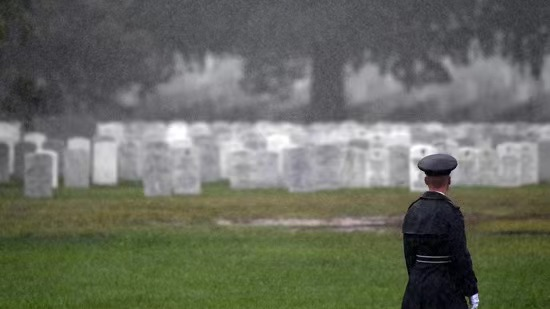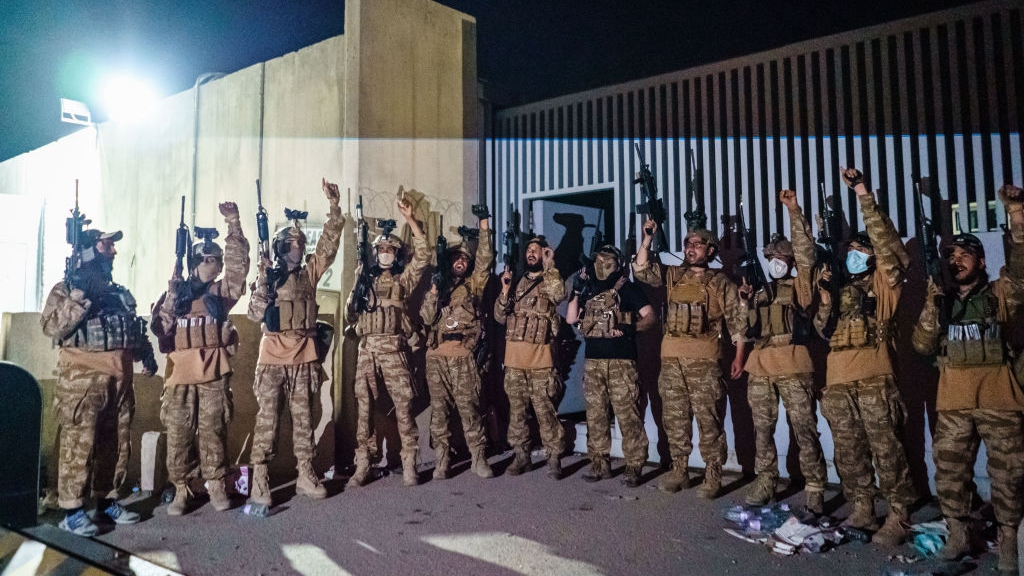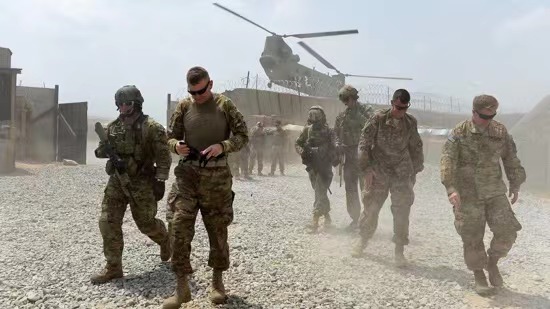
As the last U.S. aircraft carrying military personnel took off from Kabul airport on Monday, the U.S.-led war in Afghanistan came to a crushing end. But for Americans who fought or lost loved ones in the 20-year conflict, the anguish is far from over.
In the past few weeks, the rapid collapse of the West-backed government in Kabul and scenes of desperation as people tried to flee the Taliban-controlled country have been difficult and distressing to watch for many former soldiers in the U.S. and coalition forces, who are left questioning whether their mission and sacrifices were for nothing.
Since October 2001, some 800,000 American service members were deployed to Afghanistan, and more than 2,400 have died, according to the U.S. Defense Department. The official casualty has just been revised after a new terror attack by ISIS-K killed 13 U.S. soldiers amid the chaos at the Kabul airport last week.
But the true extent of the human cost from the country's longest war is thought to be much greater because veteran deaths by suicides were not tallied. A study by the Department of Veterans Affairs (VA) found that around 16 percent of the post-9/11 veterans display signs of post-traumatic stress disorder (PTSD), which increases the risk of death by suicide.
Read more:
Casualties and refugee numbers from the U.S.-led war in Afghanistan
On August 16, the day after the Taliban's takeover, the VA emailed nine million people offering support for Afghanistan veterans, including the Veterans Crisis Hotline to prevent suicides. The hotline has seen substantial increases in calls since Kabul fell, U.S. media reported.
The veteran support community across the U.S. has been caught off guard by a surge in requests for help as a result of recent news coverage about the situation in Afghanistan. A veterans' center in Cincinnati, Ohio even saw cases of Vietnam-era veterans dealing with memories of the evacuation of Saigon in 1975, local media reported.
Across the pond, a charity providing mental health support for British veterans also reportedly saw calls to their helpline more than double in light of recent events in Afghanistan.

Taliban fighters celebrate before storming into Hamid Karzai International Airport, wielding American supplied weapons, equipment and uniforms after the U.S. military completed their withdrawal in Kabul, Afghanistan, August 31, 2021. /Getty
Taliban fighters celebrate before storming into Hamid Karzai International Airport, wielding American supplied weapons, equipment and uniforms after the U.S. military completed their withdrawal in Kabul, Afghanistan, August 31, 2021. /Getty
"It's like your heart being torn out," Marine Sergeant Nick Stefanovic told CBS News. "I think it's going to be a rough few months for veterans of that war. I think this has got the potential to not only re-traumatize but to bring veterans into a dark, hopeless place."
Dr. Shannon Curry, a clinical psychologist specializing in war-related trauma, has called it a "brutal" time for American veterans.
Others have been riddled with guilt and frustration for failing to evacuate Afghans who worked for the U.S. military and now fear for their lives.
Dustin Elias, who served in Afghanistan until 2012, said his biggest fear is for the Afghan interpreters that risked their lives to help U.S. troops.
"These people that have risked their lives to help us, to not do the same and help them, morally, is wrong," he said. "How can anyone trust us?"
Matt Zeller, a U.S. Army captain and the co-founder of "No One Left Behind," a non-profit dedicated to getting interpreters and their families out of Afghanistan, estimated that around 175,000 people have been left behind.
In a live interview with MSNBC that has gone viral, Zeller slammed Biden administration's lack of preparation and planning to evacuate Afghans who had been promised protection in times like this.
"I can't forgive myself, and I'll never forgive my country for doing this," he said.

U.S. Army soldiers in Khogyani district, Nangarhar Province, Afghanistan, August 12, 2015. /CFP
U.S. Army soldiers in Khogyani district, Nangarhar Province, Afghanistan, August 12, 2015. /CFP
With two decades of efforts squandered in a matter of weeks and their global reputation in tatters, war veterans and the U.S. public alike are asking the same question: Was it worth it?
For some veterans, their way to reconcile with the war's outcome is believing they did good while there. Others point out that for years, people back home seemed to have forgotten the war in Afghanistan was still going on. Almost all those who have spoken out, including ex-service members and the families of fallen soldiers, agreed that their government botched the withdrawal.
A recent poll by the Associated Press-NORC Center for Public Affairs Research said roughly two-thirds of Americans did not think the war was worth fighting.
Brandon Caro, a U.S. Navy corpsman who was in Afghanistan in 2006-2007, wrote in an op-ed for military news site Task and Purpose that "anyone who'd spent five minutes in Afghanistan in the last 20 years knew it was a failed state waiting to happen."
Caro described feelings of detachment upon hearing the news out of Afghanistan, as many U.S. service members have done to survive their deployment.
"At a certain point — and I think this is true for just about anyone who has cycled through the theaters of Iraq or Afghanistan after September 11, you just accept that the mission is futile and the best thing you can do is (to) honor your commitment to the men and women around you and to your country and try to make it home in one piece," he said. "So, that's what I did."
(Cover photo: Section 60 of Arlington National Cemetery, which is reserved for those killed during the wars in Iraq and Afghanistan in Arlington, Virginia, August 16, 2021. /CFP)

